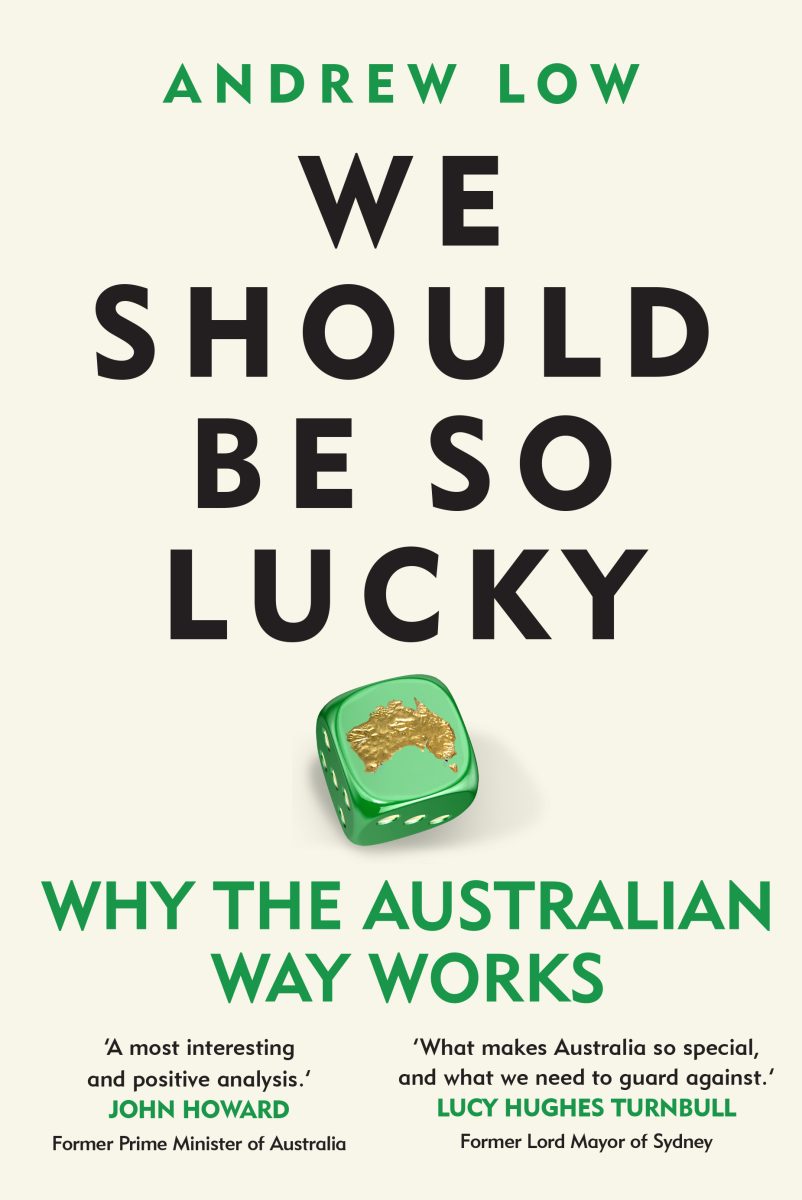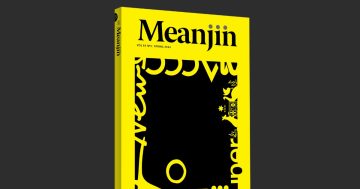
Success: Australia is often referred to as the ”Lucky Country” where good fortune has delivered people greater wealth, longer lives and better healthcare. In We Should Be So Lucky: Why the Australian Way Works, Andrew Low argues the country’s relative prosperity and longevity are not just luck. Photo: Supplied.
In We Should Be So Lucky: Why the Australian Way Works, Andrew Low reveals the truth behind the drivers of Australia’s remarkable success. Australia is often referred to as the “Lucky Country” where good fortune has delivered people greater wealth, longer lives and better healthcare.
However, he argues that our country’s relative prosperity, quality of life and longevity cannot be attributed only to luck. It’s the Australian Way that works – its several elements, why it works and the takeaways – all of which comprise many crucial lessons for other countries.
“Analysing how and why the Australian Way has worked is not only relevant for other countries,” Low writes. “Australians, too, need to reflect more about what has worked so they understand and maintain this secret sauce.”
With a profound and intelligent understanding, Low illustrates that high liveability, excellent wellbeing standards, economic opportunity and strong life satisfaction actually derive from a unique blend of political, social and economic institutions and values.
In skilfully researched scrutiny, Low draws on his vast experience in global business and finance and his deep connection to Australia. Neither a professional academic nor a politician, he extracts insights from both spheres, having spent about half of his adult life living and working in Asia, Europe and North America. Perspectives in this book come partly from the “outside looking in”.
“More than half a century after Donald Horne coined the phrase ‘The Lucky Country’ in a book with that title, most Australians still respond to the persistent evidence of their remarkable and unusual national health and prosperity by shrugging that Australia is simply lucky.
“In this book, I will challenge that notion and explore the essence of Australia in the 2020s, what really underlies this so-called ‘luck’, and what it means for Australia’s future.”
This subject is important not only for Australians.
“For a G20 country of increasing strategic importance (with a GDP larger than South Korea’s and Spain’s — or almost more than Switzerland’s and Saudi Arabia’s combined), Australia is not well understood. Locals, focused on their internal debates and inclined to hold the rest of the world at arm’s length, have not been front footed in explaining the uniqueness of Australian institutions (or even thought much about them).
“Australia’s values and institutions are quite unique, yet there is a large disconnect between how effectively these institutions work in practice and how little this is recognised.”
Low offers a compelling analysis of the Australian Way process and why it matters. The book is both a celebration of what Australia has achieved and a guide for other democracies seeking solutions to their own challenges.
According to Low, Australians focus on what’s wrong and underplay the differences between their system and European and North American models.
“Yes, Australia has had some luck; countries, like people, need a little luck to succeed. But it has been the unique institutional environment that has made the difference. Australia’s institutions, values, and culture are distinctive, and they are much stronger than is understood; far from perfect, they are nevertheless extremely adaptable, and arguably deliver better outcomes for the average person than almost every other place on Earth.
“The portrait of Australia that emerges today is more optimistic than that painted by Horne’s The Lucky Country in 1964. He underestimated some of the underlying strengths of the Australian institutional framework, which has carried the country forward, even in times when individual leaders have been poor. But it’s also because Australia has changed a lot in 60 years.”
Praise for We Should Be So Lucky is widespread. Laudatory endorsements for a book often highlight positive sentiments, especially when the testimonials come from the political elite. There’s constructive analysis, compelling ideas, a course of action, intense prose, a huge realisation and an optimistic reality check.
While former prime minister John Howard describes it as “A most interesting and positive analysis”, former NSW premier Nick Greiner calls it “An insightful view of Australia’s past successes. More importantly, a way forward for western democracies in the challenging era ahead.”
Former Australian finance minister Lindsay Tanner states: “Andrew Low delivers to the endless stream of negativity in electronic and social media.”
According to former Australian high commissioner to the United Kingdom George Brandis, “… We Should Be So Lucky is full of shrewd insight born of long experience.”
We Should Be So Lucky: Why the Australian Way Works, by Andrew Low, Prospect Editions, $36.99




